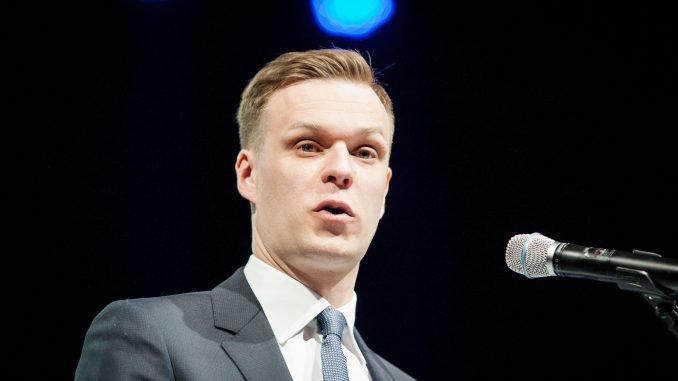
The Homeland Union – Lithuanian Christian Democrats (TS-LKD) decided during their congress that the party chairman should be elected in open elections, similarly to the proceedings of the US presidential elections. The hope is that this will help the party increase its ranks, strengthen the leader’s authority and make the country’s political life more active, LRT.lt reported.
Political scientist Algis Krupavičius believes, however, that the party has overdone matters, pointing out that in the example of the US, it is presidential candidates, not the party leaders that are elected in open elections.
TS-LKD leader Gabrielius Landsbergis told LRT.lt that the idea was born out of analysing the good practice experience of Western democracies such as the USA or France, he notes that the aim is to demonstrate that the TS-LKD is not a closed off party, whose issues only interest its 16 thousand members and to involve a greater part of the country, people who care about the direction of the TS-LKD and Lithuania.
Safeguards against opponents will be needed
The concern with such a choice is that those who are against the party could vote in the open elections, skewing the results. The Conservative leader noted that the party’s council will decide on the necessary safeguards and outlined several ideas, ranging from a ban for members of other parties to vote, to a symbolic fee of 1 to 3 euro, or signing a declaration in support of the party’s values and ideas.
Landsbergis expressed belief that openness and leaving behind strict party limits is the way political parties should head if they want to continue to play an important role in public and state life.
Too few people participate in party activity in Lithuania
Former Lithuanian ambassador to the USA, Žygimantas Pavilionis, who ran against G. Landsbergis in the party’s chairman elections, supports Landsbergis’ proposals to run open elections and stresses that this decision will help attract new members because political participation in Lithuania is far too low.
Pavilionis, who is well familiar with the political system across the Atlantic, points out that in American schools there is a daily class dedicated to nurturing civic participation and political awareness. He is convinced that politics and political parties have to become a greater part of public life, similarly to the West.
While he leaves the formulation of safeguards to the discretion of the party’s managing structures, he points out that the fee requirement may not be the right way to go as even a few euro may be too much to pay for many, while in Lithuania it is fairly atypical to donate to political causes in the first place.
A successful experiment for the Liberals
Seimas Liberal Movement group prefect Eugenijus Gentvilas praised the Conservatives’ choice to opt for open elections in its chairman elections and noted that his party performed an experiment on this two years ago in the election of the Jonava mayor.
At the time one candidate was a member of the Liberals, while the other was a woman who chose to run despite not being a member. Gentvilas states that his party has progressed further than the Conservatives in this regard. He explains that while in the end the party member was chosen as the party’s candidate, the non-partisan candidate also received significant support and overall the Jonava branch was particularly active in the last municipal elections, likely as a result.
A public relations stunt?
Representing the current coalition government, Seimas vice Speaker Gediminas Kirkilas of the Social Democrats is convinced that the planned changes are aimed at making the Conservative party’s voters more active. He says that it is an excellent public relations stunt, but one not likely to have any real changes to election results.
A failed attempt to imitate US elections
Political scientist A. Krupavičius assures there is no country where party leaders are elected through open elections. He notes that the Conservatives are unsuccessfully imitating the US presidential elections where the Republican or Democrat party candidates are chosen in open primaries, while party leaders are still elected by party members.
Krupavičius also has doubts on the necessity for open primaries in Lithuania, which is included in the Conservatives’ plans. He notes that due to the differences in the number of parties and the size of the two countries, the choice is questionable.

Be the first to comment